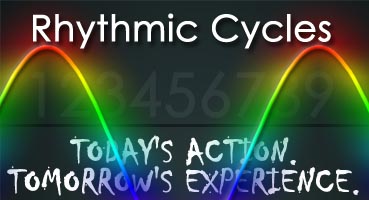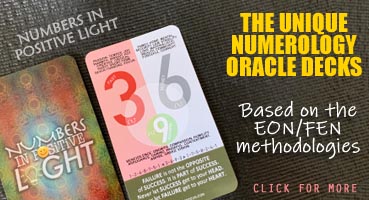Influences on Past Experiences
I know Anson in the mid 90s. Anson has a closed platonic relationship with a female colleague Lisa for many years. Indeed they were best friends since schooling days. They’re so close and many friends would often linked them as loving couples. However, Anson has a complicated family history, with his parents and grandparents (paternal and maternal sides) having multiple or failed marriages. Anson became apprehensive about starting a relationship as he feared he might end up like his parents and grandparents – continuing the spiderweb-like family history chart. Anson called me from overseas one day in 2000 for ‘friendship‘ updates. I told my observations about his reluctance to have a girlfriend. I asked if his complicated family history was the main reason. He admitted there was nothing wrong with Lisa, and he “likes” her. He was reluctant to bond the relationship closer as he was afraid history might repeat itself over and over; and that he would ended with a failed marriage, the same way that his parents and grandparents faced. I told him all of us differs, and it doesn’t mean if events happening to our parents or grandparents, we cannot assumed it would happen to us. About a year later, he called me and revealed he had let go of past fears about his family history, and he has a girlfriend.
 Now, pause for a moment and look back at your life. Do you faced same experience and life journey (rewards and sufferings) as your parents and ancestors did?
Now, pause for a moment and look back at your life. Do you faced same experience and life journey (rewards and sufferings) as your parents and ancestors did?
For many people, the answer is mostly a definite no. Times have changed – the political, economic and living environment had changed. Your living lifestyle, perceptions, expectations, beliefs, values, benefits, and “sense of entitlement” have changed too. With technology and medical advancements, including social media outreach, our current events experienced in life is different to what our parents and grandparents faced.
In a recent article, “About Sheila’s health,” I mentioned about Melissa worrying about her daughter’s health and failed relationship. Melissa has a younger daughter (Anastasia) and worry if Anastasia might follow her sister’s footsteps or influenced by her sister’s bitter experiences. Melissa do not want her youngest daughter to become more reserved, introvert, and apprehensive about relationships.
 Let’s look at Anastasia’s EON chart. She has good cognitive intellectuals, and is a creative, resourceful, and organised person (if she takes interest in). However, the strong presence of numbers 6 and 1 in her natal chart could suggest she might worry unnecessary, and reflected on the experiences her siblings and parents had. She might become more reserved and introvert-like, and unwilling to share her feelings with others.
Let’s look at Anastasia’s EON chart. She has good cognitive intellectuals, and is a creative, resourceful, and organised person (if she takes interest in). However, the strong presence of numbers 6 and 1 in her natal chart could suggest she might worry unnecessary, and reflected on the experiences her siblings and parents had. She might become more reserved and introvert-like, and unwilling to share her feelings with others.
Besides, the 8-4-3 pattern (locations V-W-X) present in her natal chart suggest some form of EQ (Emotional Quotient) issues, blunt and direct, tactless behaviour, or having unpleasant communication with others. These might result in frequent emotional and temperamental disagreements, and at extreme cases, fiery outburst or mentally charged behaviours. Anastasia might have OCD-like tendencies, strong sensuality, and “selective listening” habit, and probably with an egoistic and proud mindset.
If Anastasia exhibits many of the traits I have mentioned, it is of importance Melissa act to minimise future “hurts” on her youngest daughter. The number 5 (location H3) could suggest some challenges and obstacles between Melissa and Anastasia. Perhaps they might have frequent disagreements over what Anastasia should do. What this means is, Melissa might be over-controlling (and overbearing?) and perhaps, constantly nagging at her daughter with “it’s for your own sake” reminders. Consequently, these might cause Anastasia to have rebellious-like behaviour. In the “parent adult child” model of “Transactional Analysis,” this kind of communication state is like the “Critical Parent – Rebellious Child” relationship. What Melissa needs to do is to lower her ego, beliefs, and expectations, and bring herself at the level where she can communicate with Anastasia in an “Adult – Adult” ego state. This way, both can have cordial, logical, constructive, and “accept the disagreements” dialogues, and respect each others’ views.
 The number 3 (location H2) could suggest Anastasia might have a creative, passionate, and thought-invoking relationship with her dad. On the contrary, it could also suggest Anastasia might also experienced critical nagging and hurtful remarks made by her dad. He can put aside the fears and the “I’m saying or doing this for your own good” attitude. He can motivate and inspire Anastasia to pursue her goals, hobbies, and what she wish to do for now. As Anastasia’s dad owns a business, he could devote more quality time with her, and get her to explore possibilities where she can aspire to become more happier, independent, and contented. Let Anastasia do what she wants, and not what her dad or mum wants. In this way, when there is respect and joy at home, the rebellious streak could be reduced. Anastasia’s relationship with her parents would then resemble a “Natural Parent – Natural Child” ego state.
The number 3 (location H2) could suggest Anastasia might have a creative, passionate, and thought-invoking relationship with her dad. On the contrary, it could also suggest Anastasia might also experienced critical nagging and hurtful remarks made by her dad. He can put aside the fears and the “I’m saying or doing this for your own good” attitude. He can motivate and inspire Anastasia to pursue her goals, hobbies, and what she wish to do for now. As Anastasia’s dad owns a business, he could devote more quality time with her, and get her to explore possibilities where she can aspire to become more happier, independent, and contented. Let Anastasia do what she wants, and not what her dad or mum wants. In this way, when there is respect and joy at home, the rebellious streak could be reduced. Anastasia’s relationship with her parents would then resemble a “Natural Parent – Natural Child” ego state.
It is important to Melissa and her husband to take remedial actions to adjust their attitudes and communicative style if they want Anastasia to live a happier and healthier life. They should always bring their communicative relationship with their daughter to the “Natural Parent – Natural Child” or “Adult – Adult” ego states. They should act now as there are tendency signs in Anastasia ‘s PY2017 chart suggesting some form of EQ or strain relationships.
 The 6-1-7-8-4-3 (locations M-N-O-P-Q-R of her PY2017 chart) could suggest there might be tensions and worries at home, the feelings of loneliness, and the urge to seek friends for solace. When such pattern is present in a future date’s chart, like in the PY2017 chart, it doesn’t imply the negative vibes WOULD happen. It is just a warning signal, like telling you there is a pothole further along on the highway. You can run over the pothole and bump your head and damage your car; you can slow down and drive over the pothole and lessen any impact to your head or car; or you can change lanes and prevent the predictable outcomes. Now that you have recognised the warnings, it’s your choice to take preventive actions or doing nothing at all and face the consequences. With the respect and caring atmosphere, even if there might be tensions and worries and home, Anastasia can always seek solace from her parents, or her other siblings instead. And with a listening ear, she might share her worries and problems with family members. She might not have the “talk-down” feeling but a friendly and comfortable “adult-adult” chat with her parents.
The 6-1-7-8-4-3 (locations M-N-O-P-Q-R of her PY2017 chart) could suggest there might be tensions and worries at home, the feelings of loneliness, and the urge to seek friends for solace. When such pattern is present in a future date’s chart, like in the PY2017 chart, it doesn’t imply the negative vibes WOULD happen. It is just a warning signal, like telling you there is a pothole further along on the highway. You can run over the pothole and bump your head and damage your car; you can slow down and drive over the pothole and lessen any impact to your head or car; or you can change lanes and prevent the predictable outcomes. Now that you have recognised the warnings, it’s your choice to take preventive actions or doing nothing at all and face the consequences. With the respect and caring atmosphere, even if there might be tensions and worries and home, Anastasia can always seek solace from her parents, or her other siblings instead. And with a listening ear, she might share her worries and problems with family members. She might not have the “talk-down” feeling but a friendly and comfortable “adult-adult” chat with her parents.
The 6-9-6-6-3-9 (locations M-N-O-P-Q-R of her PY2016 chart) could suggest some changes to home of financial matters. It could also suggest some manifestations of security and stability on the positive side, and insecurities, mental and worries, and financial issues at the extreme downside. The three sets of number 6 in her PY2016 chart could also suggest the urge to seek solace to somewhere else, becoming more spiritual and religious, or over-spending. When done in line with family core values and directions, Melissa should not worry unnecessary.
 Anastasia needs to look after her health even though she’s still young. She should eat with moderation and abstains from excessive binge eating on food rich in sugar and consume too much alcoholic drinks. The reason – there are “diabetic tendencies” in her charts. The health symptoms might not surface now but when we gets older, the health symptoms might surface if we don’t take care of our health when we’re younger. She should also make an effort to improve her outwardly behaviours, like controlling her emotions and tempers to avoid manifesting other heated outburst and health symptoms later in life. Anyway, regardless of whether we are in good health now or not, it’s important we have a health insurance to take care of the financial needs in the future.
Anastasia needs to look after her health even though she’s still young. She should eat with moderation and abstains from excessive binge eating on food rich in sugar and consume too much alcoholic drinks. The reason – there are “diabetic tendencies” in her charts. The health symptoms might not surface now but when we gets older, the health symptoms might surface if we don’t take care of our health when we’re younger. She should also make an effort to improve her outwardly behaviours, like controlling her emotions and tempers to avoid manifesting other heated outburst and health symptoms later in life. Anyway, regardless of whether we are in good health now or not, it’s important we have a health insurance to take care of the financial needs in the future.
There are three influence sectors in a person’s chart – the formative environment, the external social experience, and the internal self beliefs and habits. How well can Anastasia adapt to the environment and life’s experiences mainly relies on the experiences and beliefs formulated from these sectors. While Melissa and her husband could still influence on the formative (parenting and family values) mindsets, it is entirely up to Anastasia to decide the type of memory keepsakes to have, and what she yearns to do for the near future.
While we took a lesson from past experiences, it is important to understand that we are much more than our memories. We can improve them and decide what memories we want for our life story. Our positive thoughts can influence our beliefs, perspectives, behaviours, and actions. And our actions can create happiness and opportunities in joyful and healthier ways, whether it remains for ourselves, loved ones, or others.
And we knows the good memories could linger…
Regards, Ron WZ Sun















